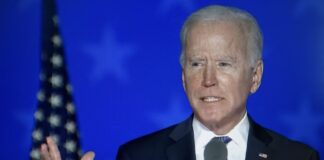Recently, CBS News issued a battleground tracker poll that revealed Republicans winning a sizable swathe of the house in November’s midterm elections.
Per the poll, the GOP may win upwards of 25 seats in the upcoming election, which would make a significant difference in passing vital legislation for Americans.
The final results of the poll indicate that 205 Democrats and 230 Republicans will control the house, falling just outside the margin of error.
In order to have a majority in the House, 218 seats must be controlled, so 230 Republicans would represent a comfortable level above the minimum threshold.
The analysis also provided three different reasons for why the GOP is leading.
The first issue pertains explicitly to “the way things are in the country,” with many voters frustrated by economic affairs alongside international incompetence.
For this issue alone, the GOP is up 16 points.
A second reason for why Republicans re in the lead can be traced to the fact that Republicans enjoy a 4-point edge on likely voters relative to Democrats.
Lastly, a third reason for why Republicans are leading in the poll can be attributed to the following belief: “Republicans get a lot of bang for their buck in translating even relatively small vote shifts into seat flips.”
Consequently, the results of this poll illustrate that the influence of former President Donald Trump’s administration, alongside the mass incompetence of the current Biden administration, remain strong influences on voters heading into the fall’s midterm elections.
A particularly strong influence includes the waning influence of Biden within his own party due to low polls across the board.
Republican voters have cited the president’s leadership as a huge reason for why the vote regarding Congress is likely to swing to the right, with 62 percent of respondents indicating that Biden’s actions had “a lot” to do with their upcoming vote for Congressional representatives.
Another major benefit for Republicans is that younger voters are the least enthusiastic about voting, whereas older voters are the most enthusiastic about voting.
The difference in voter enthusiasm is anticipated to drive big differences at the polls in November.
These content links are provided by Content.ad. Both Content.ad and the web site upon which the links are displayed may receive compensation when readers click on these links. Some of the content you are redirected to may be sponsored content. View our privacy policy here.
To learn how you can use Content.ad to drive visitors to your content or add this service to your site, please contact us at [email protected].
Family-Friendly Content
Website owners select the type of content that appears in our units. However, if you would like to ensure that Content.ad always displays family-friendly content on this device, regardless of what site you are on, check the option below. Learn More



